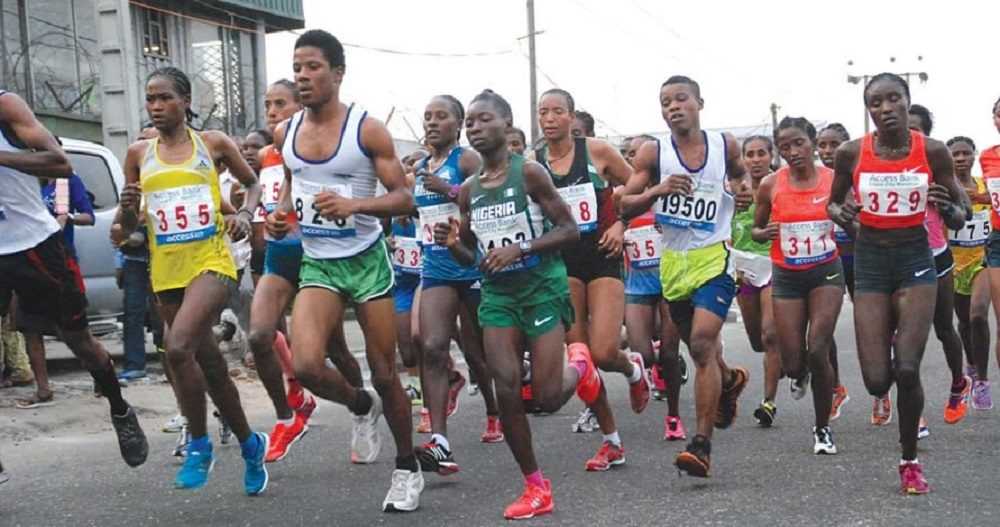
Before the Access Bank Lagos City Marathon started 10 years ago on February 6, 2016, the last time there was an international marathon in Nigeria was probably in 1994 at the Milo International Marathon in Lagos, where there was a catastrophe between Nigerian runner Gideon Hagack from Plateau State and the Athletic Federation of Nigeria—an incident Sydney Olympics gold medallist Enefiok Udo-Obong wrote a book about.
Though other stakeholders during that period, like former technical subcommittee chairman of AFN, Rotimi Obajimi, have denied the Olympian’s report and given a different version of the October 9, 1994, incidents.
Afterward, there was a long dark cloud over marathon and distance races in Nigeria for more than ten years. Apart from Abass Mohammed, Nigeria’s marathon record holder, only two in twenty Nigerian journalists can name two Nigerian marathon and long-distance runners, apart from Gideon Hagack, whom the majority have just found out about in this article.
But now, we can mention Emmanuel Gyan, Adamu Shehu Mazu, Sharabutu Philips, Abdulhakeem Tunis, Adepegba Lateef, and Gyang Boyi—who was the first Nigerian to cross the finish line at the 2025 Access Bank Lagos City Marathon—along with his brother Solomon Boyi, who became the second Nigerian to emerge victorious, and a whole lot of others that time will not permit me to mention.
In the female category, we have Fadekemi Olude, Deborah Pam (the wife of Emmanuel Gyan), Elizabeth Nuhu, Dimatu Yohana, and many more.
Between 1994 and the year Nilayo Sports Management took the dream of an international marathon in Lagos to the former governor of the state, Akinwunmi Ambode, only a handful of sports journalists had reports, interviews, videos, or stories on international marathons.
I don’t know of any who have traveled to Boston or New York to cover the marathon with evidence of reports, or to the Comrades Marathon in South Africa, the Standard Chartered Marathon in Nairobi, and many others like them.
But today, I can categorically say that the Access Bank Lagos City Marathon has given me and ninety percent of my colleagues a great opportunity to see the big picture of what an international marathon should be, right in our backyard.
Since 2016, I don’t know of any sporting event apart from the Access Bank Lagos City Marathon, whether local, national, or international, that has taken place for ten years nonstop. Even during the COVID-19 pandemic, the race still held.
In terms of the biggest prize money in the history of Nigerian sports since independence, no sport in Nigeria, either by money spent on preparation or money given to participants, can come close to the Access Bank Lagos City Marathon.
So, the award for the best sporting event and the most developing sport that has had the most impact on Nigerians in the last decade goes to the Access Bank Lagos City Marathon.
In summary, in a country where sports ministers, presidents of sports federations, and bigwigs in the sporting industry lament the lack of sponsorships, and considering the number of top international brands that have identified with the Access Bank Lagos City Marathon, it’s sufficient to write that sports will grow and develop more in Nigeria with the private sector actively participating.






